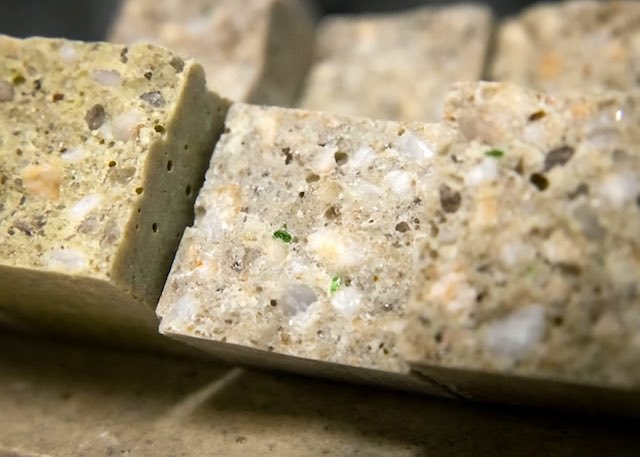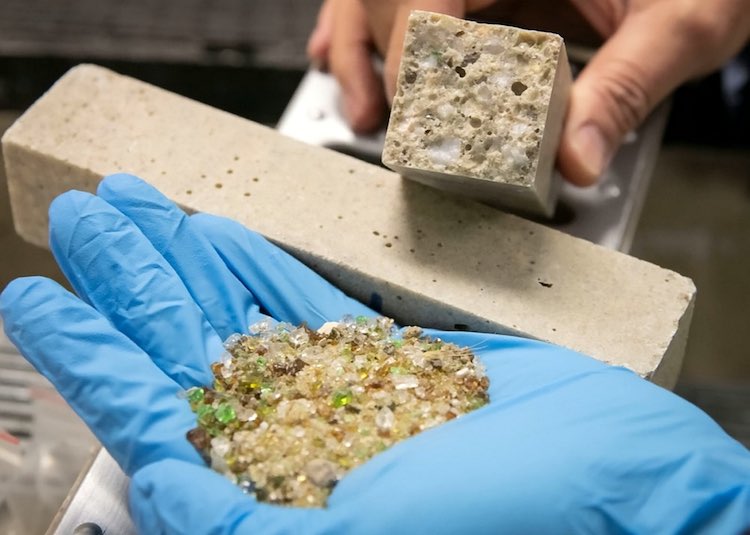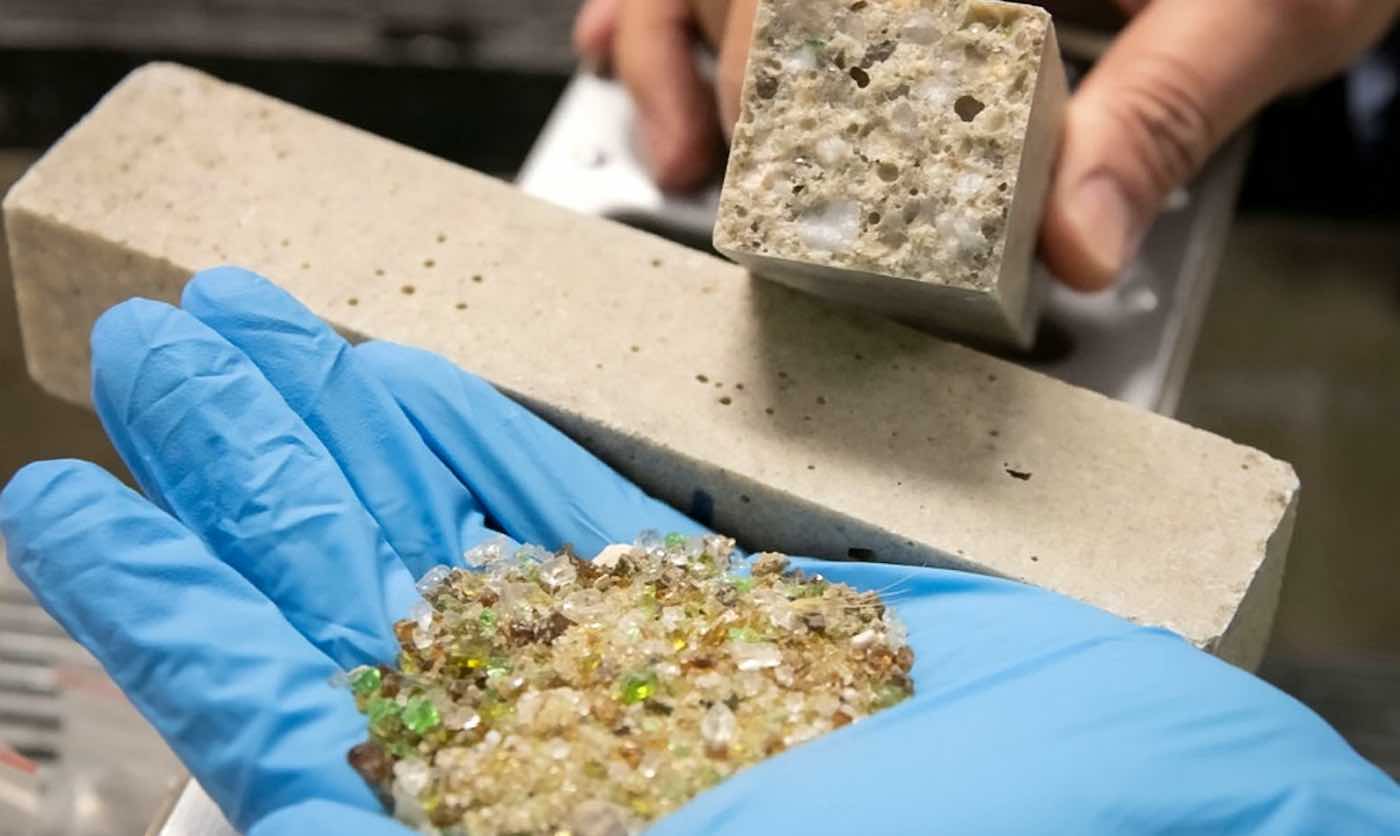
Australian researchers have developed an exciting new technique for making concrete out of non-recyclable glass that has been turned back into sand.
The team found that ground-up glass can be used specifically to make polymer concrete, a material that uses polymers – typically resins – to replace lime-type cement as a binder for roads.
Since polymer is a particularly high-strength, water-resistant material, it is also suited for areas with heavy traffic such as service stations and airports.
Now that the team has successfully used the waste as a replacement for the industrial flooring, they believe that the process could open a whole new world for recycling glass that could not be remade into newer glass.
Dr. Riyadh Al-Ameri from the Deakin School of Engineering in Victoria said he is optimistic about using their research to give new life to the glass.
“This research provides the evidence the construction industry needs to see the potential of glass as a substitute for sand when making polymer concrete and, potentially, concrete,” says Al-Ameri.
“Concrete is a major construction material and sand is one of its primary components, so finding an alternative to sand makes good economic sense,” he added. “Mined sand requires washing and grading before it is added to aggregate, cement and water to make concrete.
MORE: Construction Begins On First Ever Commercial Plastics-to-Fuel Factory in the US
“We have found that substituting sand with ground recycled glass makes the polymer concrete stronger and is a sustainable use of one of the major types of recyclables in the domestic waste stream.
“Worldwide, the construction industry represents 6% of global gross domestic product, according to the World Economic Forum,” says Al-Ameri. “Any changes that reduce the cost of production will lead to significant gains across the industry, potentially on a global scale.”
Alan Travers – who is the products director for Orca Civil Products, the Melbourne-based company which had a hand in the research – said the partnership produced results that will be useful in taking the concept further to commercialization.

“The specific type of waste glass used in this project was unsuitable for recycling back into glass and the amount that is stockpiling is becoming a community problem,” said Travers. “The concept has even more appeal to us because of predicted shortages of natural, mined sands in the medium term.”
Al-Ameri now says that the next stage of their research will involve examining substitutes for the aggregate in polymer concrete, optimizing the substitution rate, assessing durability, and the commercialization of the new product.
“Worldwide, the construction industry represents six per cent of global GDP, according to the World Economic Forum,” says Al-Ameri. “Any changes that reduce the cost of production will lead to significant gains across the industry, potentially on a global scale.”
Build Up Some Positivity By Sharing The Good News With Your Friends On Social Media…




















